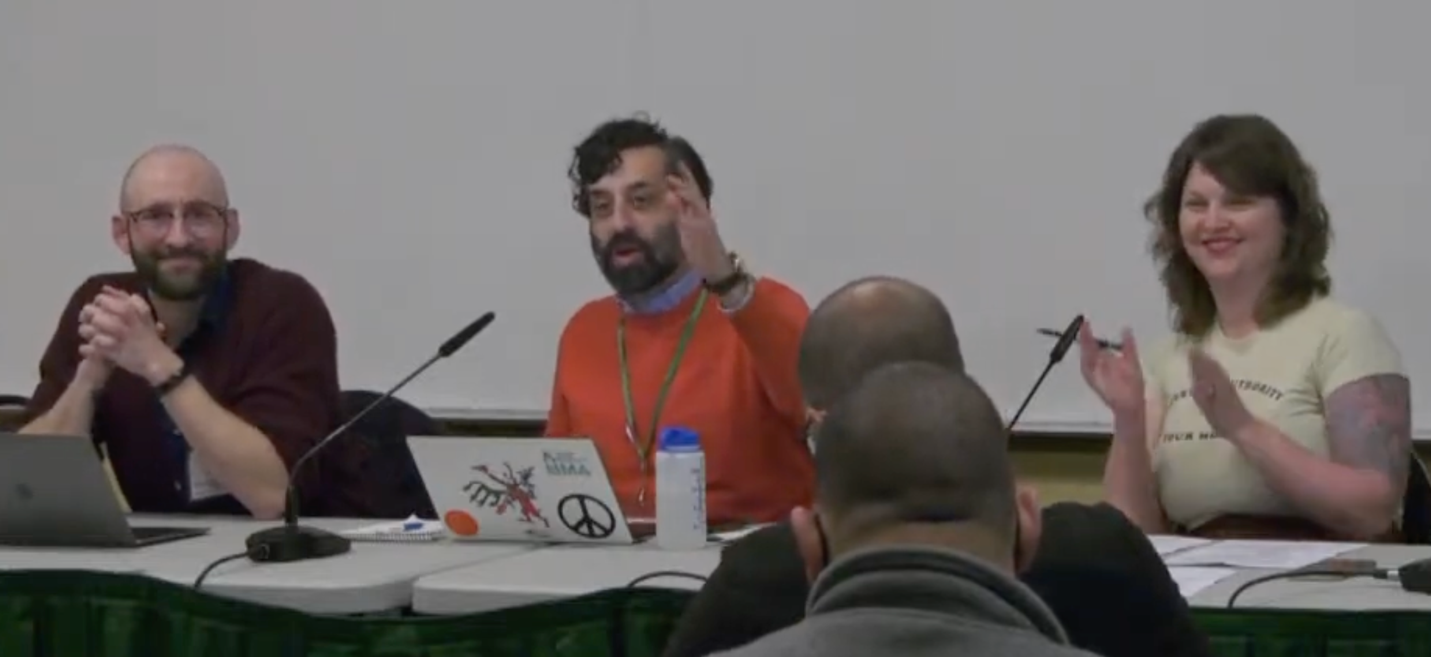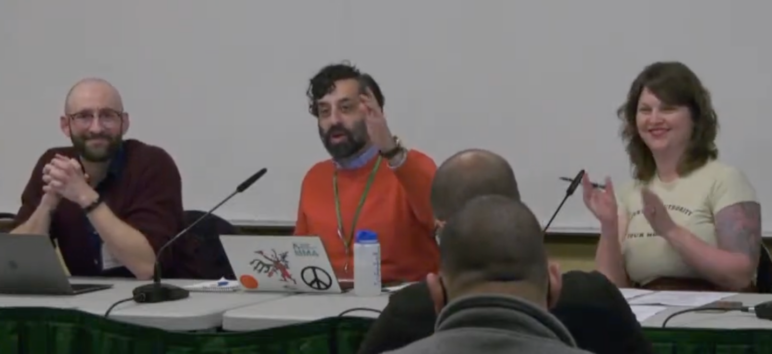The conversation shared below was part of the YIMBYtown 2022 conference, cohosted by Sightline Institute and Portland: Neighbors Welcome.*
How do you create an advocacy organization that is inclusive, welcoming, and focused? How do you help staff and board members avoid burnout? How do you turn a Facebook page of housing advocates into a powerhouse organization that shifts public policy at the city and state levels? These questions aren’t easy to answer, but they are critical for anyone interested in building a robust, lasting, and effective organization.
Three leaders who have been involved with several advocacy groups, political campaigns, and nonprofits share what they’ve learned over the years to help support advocates’ long-term success.
- Henry Honorof, lead organizer of Welcoming Neighbors Network, stresses the importance of teams, having a campaign to build around, and organizational independence.
- Jesse Kanson-Benanav, executive director of Abundant Housing Massachusetts and self-described serial organization starter, talks about how “grass-tops” organizations can help support and build the capacity of grassroots organizations. He advises that groups lean on experts such as lawyers, who can help with understanding tax and finance issues, and establish the proper nonprofit classifications so that they can focus on their mission.
- Sarah Weber-Ogden, co-founder of the Sunrise Movement PDX hub, discusses Sunrise’s momentum-driven organization model and withstanding the winds of fundraising and leadership change. She strongly believes in the need for generative reciprocity and radical inclusion, because accessibility is key to an organization’s survival.
The panelists walk through the three stages of organization building: Stage 1) the true startup phase of growing from a Facebook group to an organization; Stage 2) becoming a sustainable organization; and what they refer to as “Stage 2½”) figuring out how you relate to broader ecosystem. All three panelists also note the strength in interorganizational and interpersonal relationships, which manifests coalition and action.
*YIMBYtown 2022 occurred April 11–13 in Portland, Oregon, the fourth annual gathering (after some COVID delays) of “Yes in My Back Yard” (YIMBY) community leaders, organizers, planners, policymakers, educators, and housing providers eager to share resources and strategies for building more affordable, sustainable, and equitable communities.










